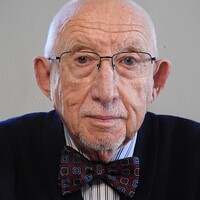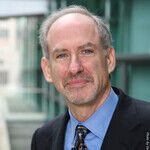We live in an age of dichotomy.
The rich are getting richer and the poor are getting poorer.
We have more means of communication, but there is a pandemic of loneliness.
We have unprecedented access to information, but we seem to know less, from civics to the history of the country.
We are beginning to see artificial intelligence displacing white-collar workers in many sectors, but there is a crying shortage of skilled workers, including welders, electricians, pipe fitters and ironworkers.
If your skill involves your hands, you are safe for now.
New data centers, hotels and mixed-use structures, factories and power plants are being delayed because of worker shortages. But the government is expelling undocumented immigrants, hundreds of thousands who have skills.
Thoughts about dichotomy came to me when Adam Clayton Powell III and I were interviewing Hedrick Smith, a journalist in full: a Pulitzer Prize-winning reporter and editor, an Emmy Award-winning producer/correspondent and a bestselling author.
We were talking with Smith on "White House Chronicle," the weekly news and public affairs program on PBS for which I serve as executive producer and co-host.
The two dichotomies that struck me were Smith's explanation of the decline of the middle class as the richest few rise, and the way Congress has drifted into operating more like the British Parliament with party-line votes than the body envisaged by the founders.
Echoing Benjamin Disraeli, the great British prime minister who said in 1845 that Britain had become "two nations," rich and poor, Smith said: "Since 1980, a wedge has been driven. We have become two Americas economically."
On the chronic dysfunction in Congress, Smith said: "When I came to Washington in 1962, to work for The New York Times, budgets got passed routinely. Congress passed 13 appropriations bills for different parts of the government. It happened every year."
This routine congressional action happened because there were compromises, he said, noting, "There were 70 Republicans who voted for Medicare along with 170 Democrats. (There was) compromise on the national highway system, sending a man to the moon in competition with the Russians. Compromise on a whole slew of things was absolutely common."
Smith remembered those days in Washington of order, bipartisanship and division over policy, not party. There were Southern Democrats and Northern Republicans, and Congress divided that way, but not routinely by party line.
He said, "There were gypsy moth Republicans who voted with Democratic presidents and boll weevil Democrats who voted with Republican presidents."
In fact, Smith said, there wasn't a single party-line vote on any major issue in Congress from 1945 to 1993.
"The Founding Fathers would never have imagined that we would have what the British call 'party government.' Our system is constructed to require compromise, while we now have a political system that is gelled in bipartisanship."
On the dichotomy between the rich and the poor, Smith said that in the period from World War II up until 1980, the American middle class was experiencing a rise in its standard of living roughly keeping up with what was happening to the rich.
But since 1980, he said, "The upper 1%, and even the top 10%, have been soaring and the rest of the country has fallen off the cliff."
This dichotomy, according to Smith, has had huge political consequences.
In 2016, he said, Donald Trump ran for president as an advocate of the working class against the establishment Republicans: "He had 15 Republican (contenders) who were pro-business; they were pro-suburban Republicans who were well-educated, well-off. Trump had run on the other side, trying to grab the people who were aggrieved and left out by globalization. But we forget that," he said.
Smith went on to say that Bernie Sanders, the Democratic presidential candidate in 2016, did the same thing: "He was a 70-year-old, white-haired socialist who came from Vermont, with its three electoral votes, but he ran against the establishment candidate, Hillary Clinton ... and he damn near took the nomination away from her."
Smith said that result showed "there was rebellion against the establishment."
That rebellion, in my mind, has resulted in a worsening separation between and within the parties. They aren't making compromises which, as in times past, would offer a way forward.
A final dichotomy: The United States is the richest country the world has ever seen, and the national debt has just reached $38 trillion dollars.
Llewellyn King is executive producer and host of "White House Chronicle" on PBS. His email is [email protected]. To find out more about Llewellyn King and read features by other Creators Syndicate writers and cartoonists, visit the Creators Syndicate website at www.creators.com.
Photo credit: elizabeth lies at Unsplash






View Comments